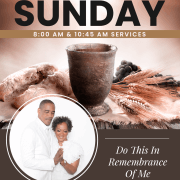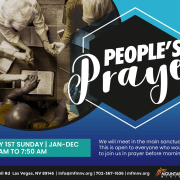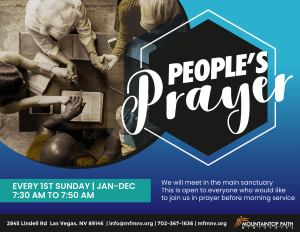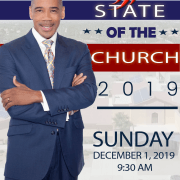The open carry of firearms in Nevada is legal without the need of a license or registration. Though people are required to obtain a Nevada CCW permit to carry a concealed weapon in Nevada. There are specific locations where guns are prohibited, including:
*public schools,
*childcare facilities,
*VA facilities, and
*legislative buildings.
People face stiff Nevada State Prison sentences for violating specific firearm laws, including using a gun in the commission of a Nevada crime or being a felon in possession of a firearm in Nevada. But it is possible to pay a fine for other gun crimes, such as brandishing a gun in Nevada or possessing a firearm under the influence in Nevada.
Nevada requires background checks for all gun sales (unless the purchaser has a CCW permit). People who lose their Nevada gun rights might be able to get them back through a Nevada pardon. With some exceptions, children under 18 may not possess guns. And immigrants convicted of a firearm crime risk deportation.
Prohibited gun locations in Nevada
Nevada does not permit pistols, handguns, and rifles at the following Nevada locations:
* airports (past the secure areas) and planes,
*childcare facilities (without written permission),
*public schools and private schools (without written consent),
*Nevada System of Higher Education property (without written consent),
*legislative buildings,
*post offices,
*VA facilities,
*federal facilities,
*military bases (with some exceptions) and
*Hoover Dam.
Possessing a gun in a prohibited location is a Nevada misdemeanor, carrying:
*up to six (6) months in jail, and/or
*up to $1,000 in fines, and
*maybe community service in Nevada.
OPEN CARRY LAWS IN NEVADA
Open carry is legal throughout Nevada unless otherwise forbidden by federal or state law.
CONCEALED CARRY LAWS IN NEVADA
Concealed carry is legal throughout Nevada as long as the person has a valid carrying concealed weapons (CCW) permit. Nevada residents need a CCW permit from the county where they reside. For non-Nevada residents, the Department of Public Safety recognizes CCW permits from individual states. Otherwise, they need to get a Nevada CCW permit.
Concealed carry without a valid permit is a category C felony in Nevada, carrying:
one to five (1 – 5) years in prison and
maybe a $10,000 fine.
Children can have a lot of fun playing with their toys. However, it’s important to keep in mind that safety should always come first. Each year thousands of children are injured by toys.
Read on to learn what to look for when buying toys and how a few simple ideas for safe use can often prevent injuries.
Preventing Injuries from Toys:
Most injuries from toys are minor cuts, scrapes, and bruises. However, toys can cause serious injury or even death. This happens when toys are dangerous or used in the wrong way.
10 Toy Buying Tips:
Here are tips to help you choose safe and appropriate toys for your child.
- Read the label. Warning labels give important information about how to use a toy and what ages the toy is safe for. Be sure to show your child how to use the toy the right way.
- Think LARGE. Make sure all toys and parts are larger than your child’s mouth to prevent choking.
- Avoid toys that shoot objects into the air. They can cause serious eye injuries or choking.
- Avoid toys that are loud to prevent damage to your child’s hearing. See 10 Tips to Preserve Your Child’s Hearing during the Holidays.
- Look for stuffed toys that are well made. Make sure all the parts are on tight and seams and edges are secure. It should also be machine washable. Take off any loose ribbons or strings to avoid strangulation. Avoid toys that have small bean-like pellets or stuffing that can cause choking or suffocation if swallowed.
- Buy plastic toys that are sturdy. Toys made from thin plastic may break easily.
- Avoid toys with toxic materials that could cause poisoning. Make sure the label says “nontoxic.”
- Avoid hobby kits and chemistry sets for any child younger than 12 years. They can cause fires or explosions and may contain dangerous chemicals. Make sure your older child knows how to safely handle these kinds of toys.
- Electric toys should be “UL Approved.” Check the label to be sure.
- Be careful when buying crib toys. Soft objects, loose bedding, or any objects that could increase the risk of entrapment, suffocation, or strangulation should be kept out of the crib. Any hanging crib toy (mobiles, crib gyms) should be out of the baby’s reach and must be removed when your baby first begins to push up on his or her hands and knees or when the baby is 5 months old, whichever occurs first. These toys can strangle a baby. See Reduce the Risk of SIDS & Suffocation.
Choosing the Right Toys for the Right Age:
Age recommendations on toys can be helpful, because they offer guidelines on the following:
- The safety of the toy (for example, if there any possible choking hazards)
- The ability of a child to play with the toy
- The ability of a child to understand how to use a toy
- The needs and interests at various levels of a child’s development
Important Information About Recalled Toys:
One of the goals of the Consumer Product Safety Commission (CPSC) is to protect consumers and families from dangerous toys. It sets up rules and guidelines to ensure products are safe and issues recalls of products if a problem is found. Toys are recalled for various reasons including unsafe lead levels, choking or fire hazards, or other problems that make them dangerous. Toys that are recalled should be removed right away. If you think your child has been exposed to a toy containing lead, ask your child’s doctor about testing for elevated blood lead levels. See Blood Lead Levels: What Parents Need to Know.
Additional Information from HealthyChildren.org:
- Dangers of Magnetic Toys and Fake Piercings
- Button Battery Injuries in Children: A Growing Risk
- The Secret to a Smarter Baby
- 10 No-Cost, Screen-Free Activities to Play with Your Preschooler
- Amber Teething Necklaces: A Caution for Parents
Source Adapted from A Parent’s Guide to Toy Safety (Copyright © 2008 American Academy of Pediatrics)
I don’t know of many people who don’t love Christmas time. This time of year, believers remember the birth of our Savior and celebrate by giving gifts to others, just like the wise men brought gifts of frankincense, mirth, and gold to baby Jesus. And non-believers….hmmm….well, I don’t know why non-believers celebrate Christmas, but I do know they love this time of year as much as we do like to buy and exchange gifts too.
Everyone celebrates Christmas time. Christians. Non-believers. But especially retailers. Yep, the most celebrated time of the year is also the most critical time of the year to stores and retailers, as it means there is a lot of opportunities to make a lot of money. According to an article on USAToday.com [1], customers are projected to spend over $1.1 trillion this time of year! While we customers are thinking about Santa’s red sleighs and candy canes, retailers are thinking about the “green” customers are going to spend at their stores or on-line. That is why internet sales and holiday specials start so early — businesses want to give you plenty of opportunities to spend your money. And there is nothing ethically wrong with that. It’s just business.
Nowadays, if you haven’t started your Christmas shopping by the beginning of December, you’re behind! Black Friday weekend sales are over, and Cyber, Monday One-Day opportunities, has passed. So, if you missed it, what are you going to do? The first thing you need to do is relax. There is still plenty of time. Secondly, you need to know what you are willing to spend on Christmas gifts this year. And once you’ve come to that number, you need to be resolved not to spend more than that amount. Developing a plan will help (calm down, I didn’t say a budget). Next, ask yourself some hard questions. Like…
“Does it make sense for me to spend this much money on Christmas, given my financial situation?”
Or……
“If I spend this much money on gifts, what is it going to cost me later?”
Or……
“If I spend this much money on Christmas, will I have any trouble paying my bills?”
If there is any hesitation to truthfully answering these questions, you might need to reduce the amount you plan on spending. I know everybody wants to give gifts, and retailers are more than happy to help you with that, but you have to know your limitations. Maybe this year, you will need to give more cards than gifts. Or perhaps all you can give this year are text messages! That’s OK!
Don’t let the fear of people’s potential reactions make you do something you will regret later. Sometimes we let ourselves get carried away with silly fears and make bad choices. We worry ourselves with thoughts of how others will feel if we can’t get them the gift we think they are expecting. We fear our failure to meet their expectations will somehow damage the relationship. But if it does, what does that say about the relationship in the first place? And when it comes to children, did you know not one kid in history was emotionally damaged because they didn’t get what they wanted for Christmas? Nope. Not one (trust me, I researched it). Kids are pretty resilient. They’ll live. Does that sound kind of harsh? Not sorry. The truth is not nearly as pleasant as often as we’d like to believe. We have to exercise some restraint. When Christmas has passed, YOU will be the one left to deal with your spending choices.
I want you to have a good time and celebrate Christmas with all your family and friends. But, even more so, I want you to celebrate wisely and not be burdened with any financial debt months later because you “went all out.” Besides, Christmas is about Jesus, not gifts! Enjoy the holiday season. But at the same time, know YOUR season. You can’t reap and sow at the same time. Merry Christmas and God Bless!
LOCATION
2845 Lindell Rd
Las Vegas NV 89146
SUNDAYS
A Time of Prayer 9:00 am (on campus) 1st Sundays (Feb-Oct) Worship Service On-Campus & Online 10 am PST
WEDNESDAYS
Bible Study with Pastor Clinton HouseCheck schedule for services
CONTACT
Phone: (702) 367-1636
Fax: (702) 367-4008
LOCATION
2845 Lindell Rd
Las Vegas NV 89146
CONTACT
Phone: (702) 367-1636
Fax: (702) 367-4008
SUNDAYS
A Time of Prayer 9:00 am (on campus) 1st Sundays (Feb-Oct)
Worship Service On-Campus & Online 10 am PST
WEDNESDAYS
Bible Study with Pastor Clinton House
Concluded for 2025 Check schedule for special services















